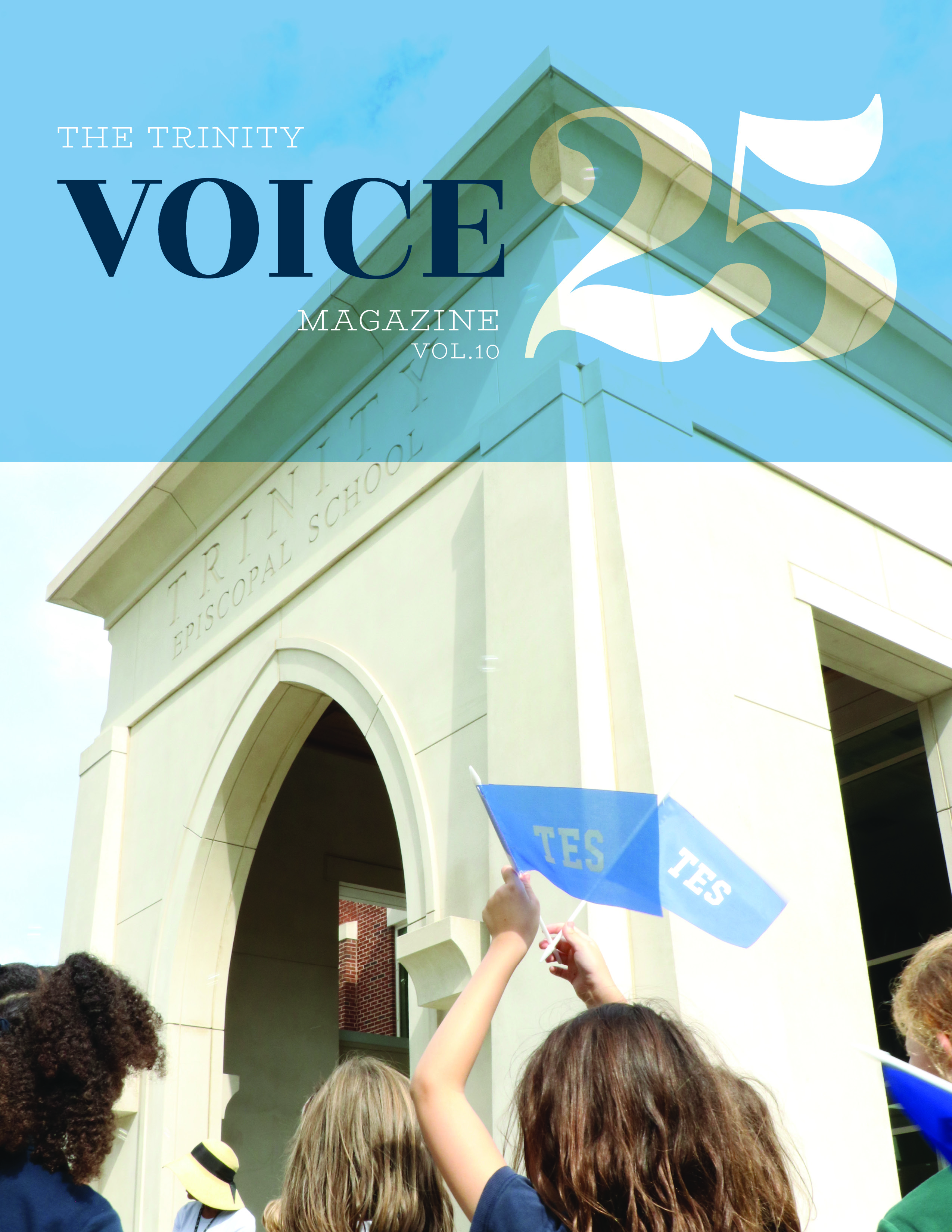Spirituality and Diversity Working Hand in Hand at Trinity
The following article appeared in the Spring 2025 issue of The Trinity Voice
One of the first things that 5th Grade students' eyes were drawn to when they entered the sanctuary of Temple Beth El in Charlotte was the stained-glass doors of the aron hakodesh (“holy ark”).
As Rabbi Lexi Erdheim shared how her congregation worships and answered students’ questions about the Jewish faith, she opened the rainbow-colored doors where the Torah is stored, and she invited students onto the bimah - or platform - where she unrolled the scroll for them to see.
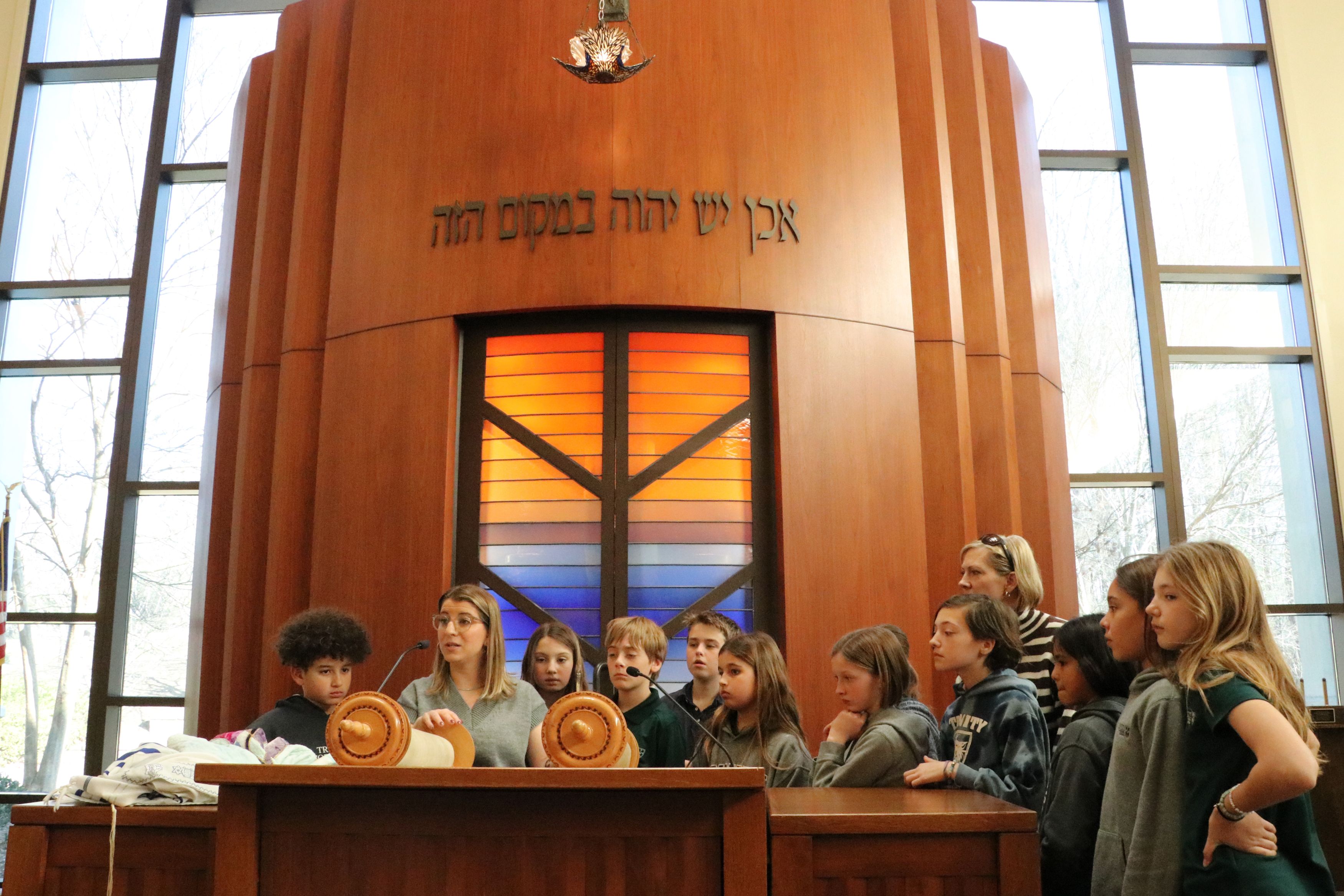
The visit to the temple was the completion of the grade’s faith studies unit on Judaism. In an earlier unit studying Hinduism, students visited the Hindu Center of Charlotte, climbing the stairs of the temple and taking off their shoes before entering the worship space. When they left, the center’s priests offered holy water and a blessing over the students.
“You feel the floor under your feet, you smell the incense, and it engages all the senses,” said The Rev. Lindsey Peery, Trinity’s Interim Head Chaplain.
Exploring the many faiths in the community is one of the ways Trinity not only nurtures spirituality, but also embraces diversity.
“It's really like two sides of a coin,” Peery said. “Nurturing spirituality and embracing diversity just go together hand in hand.”
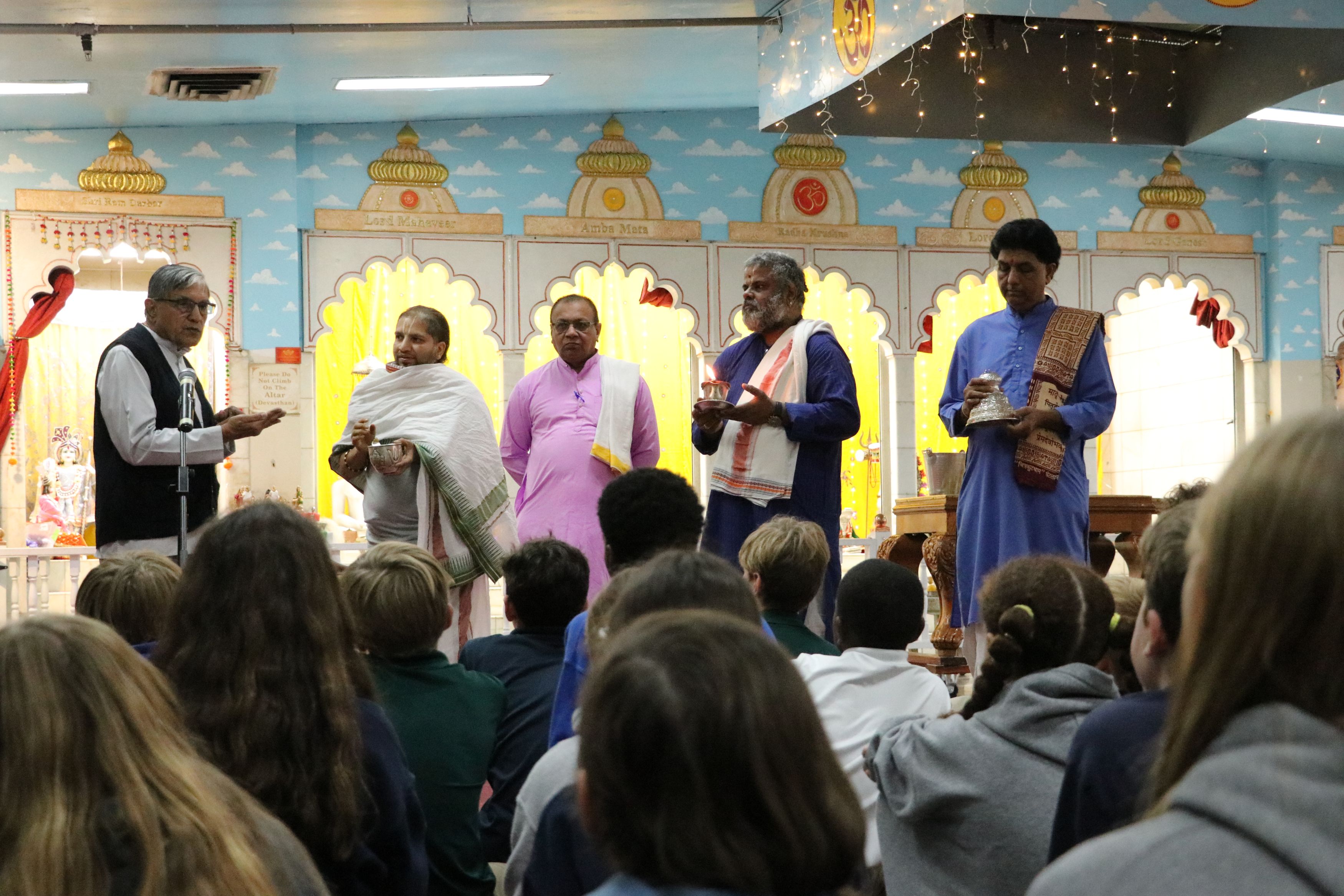
Trinity’s commitment to diversity in its many forms - cultural, religious, etc., - was not in response to any modern shift in the broader world, but was a founding core value of the school. Decisions such as where to locate the school were grounded in reflecting the diversity of the community.
Diversity is also an important part of Trinity’s Episcopal identity. As an Episcopal school, Trinity supports every child on their spiritual journey, not toward a particular denomination or faith background, but toward developing compassionate hearts. The Episcopal identity statement, first written in 2013 and updated in 2020, also calls on the school community to foster a sense of belonging in an inclusive environment, and strive for equity, justice, and love of neighbor.
“We’re not training up students to be Episcopalians, but to become more open, more accepting, more understanding, and more empathetic as they become young adults,” Peery said.
Perhaps the most visible displays of the connection between Trinity’s spirituality and diversity core values are the K-8 Chapel services that celebrate community groups and feature speakers from other faith traditions. Rabbi Erdheim was one such guest, leading a Chapel service during Jewish High Holy Days. Another Chapel service brought the festival of Diwali to life through song and dance.
Erdheim said the temple visit and Chapel “provide a safe space to ask questions and to build bridges across differences… and find solidarity in our shared values.”
Even within the Christian faith, Chapel services show the breadth of diversity of worship styles, such as the music-filled Sankofa Chapel each year during Black History Month. Trinity’s Latino families have led Chapel celebrations of their cultures during Hispanic Heritage Month, and in recent years, the student GSA affinity group has organized a Pride Chapel.
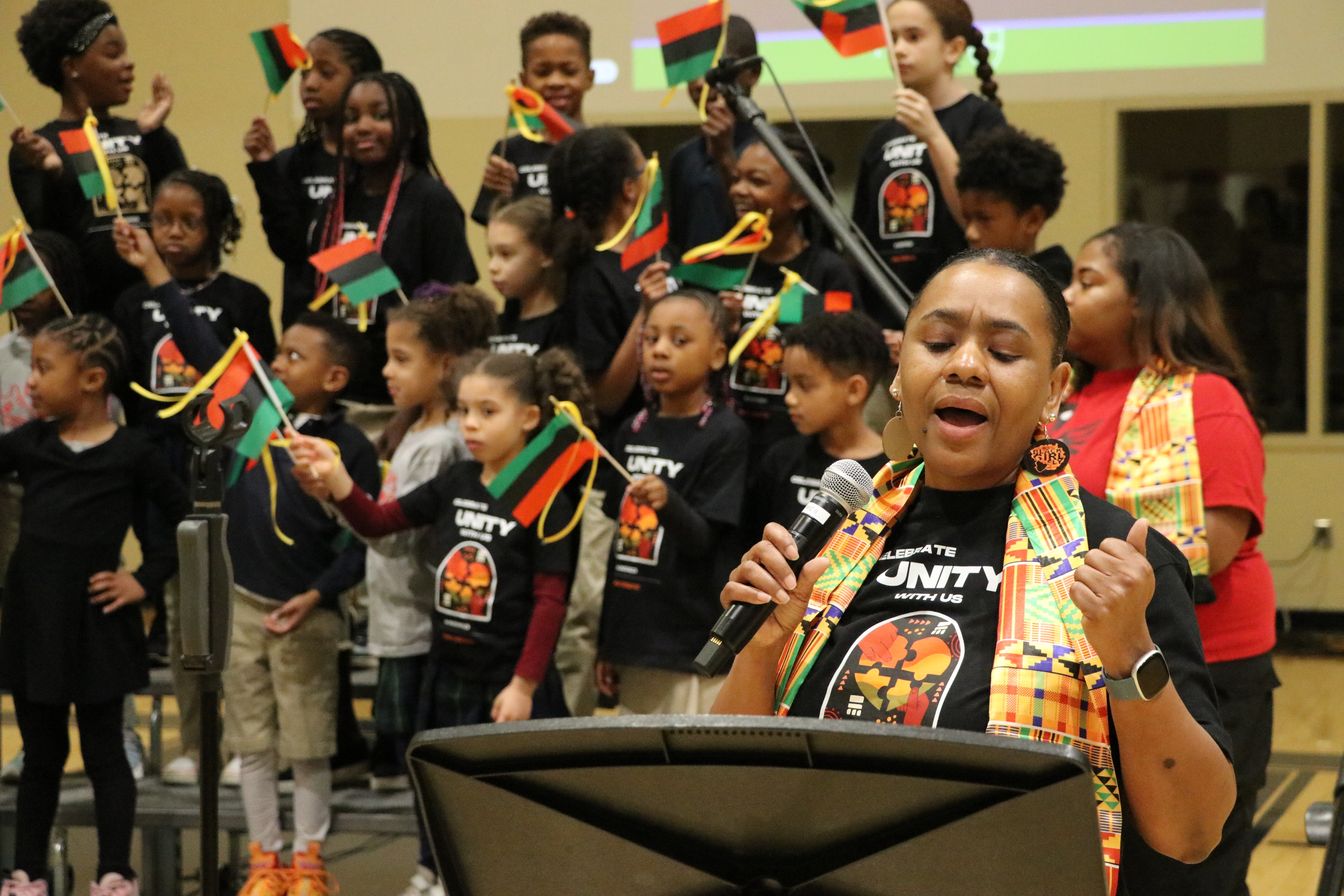
“It’s beautiful the way we involve families and students, (giving) that opportunity to see yourself reflected to celebrate your heritage,” Peery said. “I can only imagine how it helps children make connections. I don’t think there’s any other school doing this the way we are in Charlotte.”
Ayeola Elias, Trinity’s Director of Diversity, Equity, and Belonging, said those Chapel services are powerful opportunities that empower students to feel like they belong, whether it’s on campus or in the community.
“We get to experience spirituality through their eyes,” she said. "It’s a privilege. We all get to experience it and become better humans.”
Faith studies classes continue the exploration of diverse world faiths and how they build upon other faiths. 8th Grade’s world religions class included a new project in which students created a spiritual life map that includes a fact about a different faith tradition and how it is reflected in their own faith or spiritual journey.
Even if a student does not come from a faith background, Peery said, they can still be on a spiritual journey that can be nurtured and include traits that are found in other faiths.
“Spirituality is this constant growth toward what we were meant to be,” Elias added.
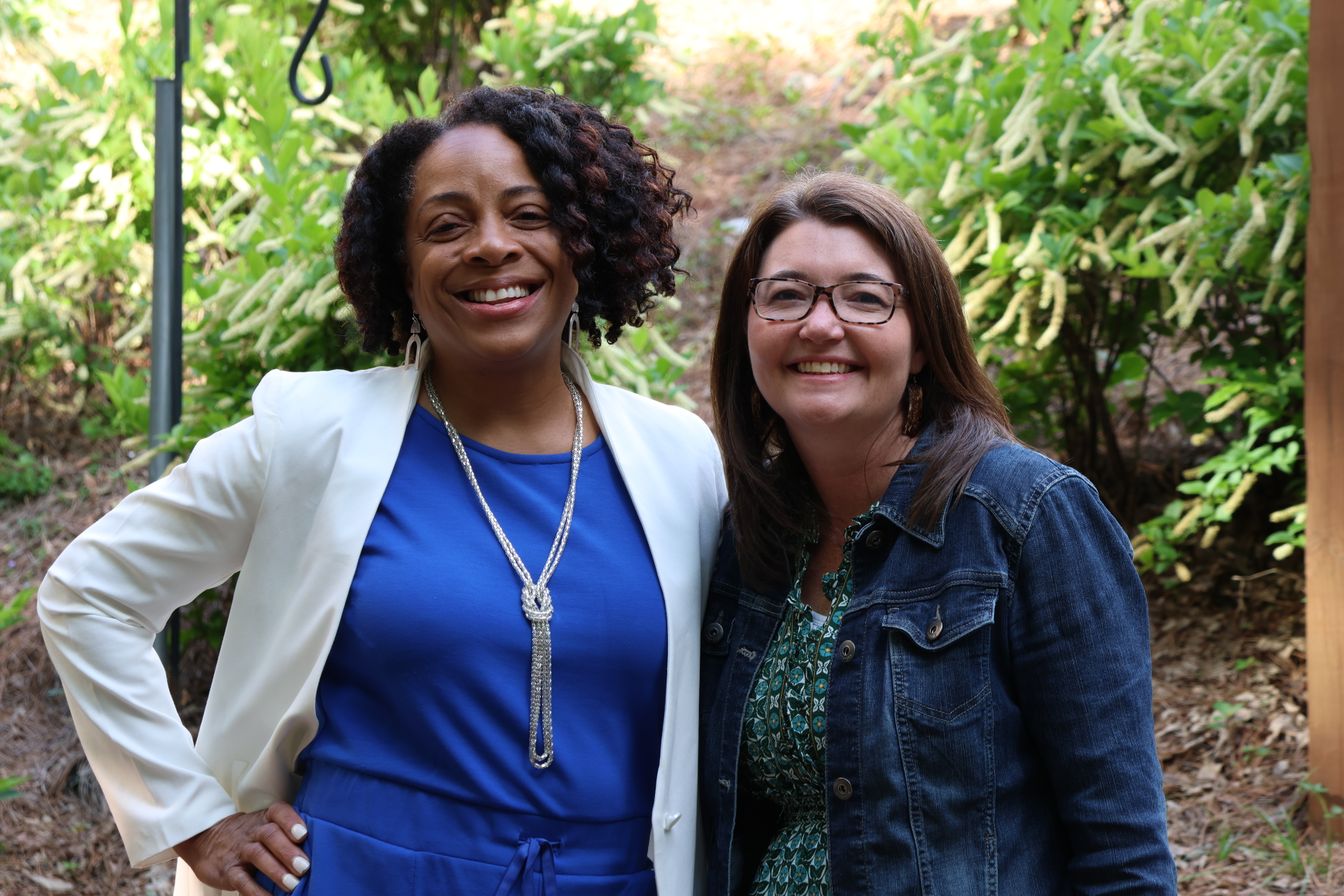
Beyond Chapels and faith studies classes, spirituality is a critical piece of the four essential questions that frame Trinity’s diversity, equity, and belonging practices: Who am I? Who are you? Who are we together? What are we called to do?
Elias said those questions reinforce a person’s uniqueness as part of God’s creation, love of neighbor, and our shared values. “Your experience is part of my responsibility,” she said. “Scripture asks, 'Are you your brother’s keeper?’ Yes, we belong to one another.”
Students take on that responsibility through service learning in every grade - another layer of spirituality and diversity being interwoven. When a student delivers a meal to a neighbor or spends time with someone with different abilities, “you’re learning about someone else’s situation and building empathy,” Peery said, “and you’re called to action.”
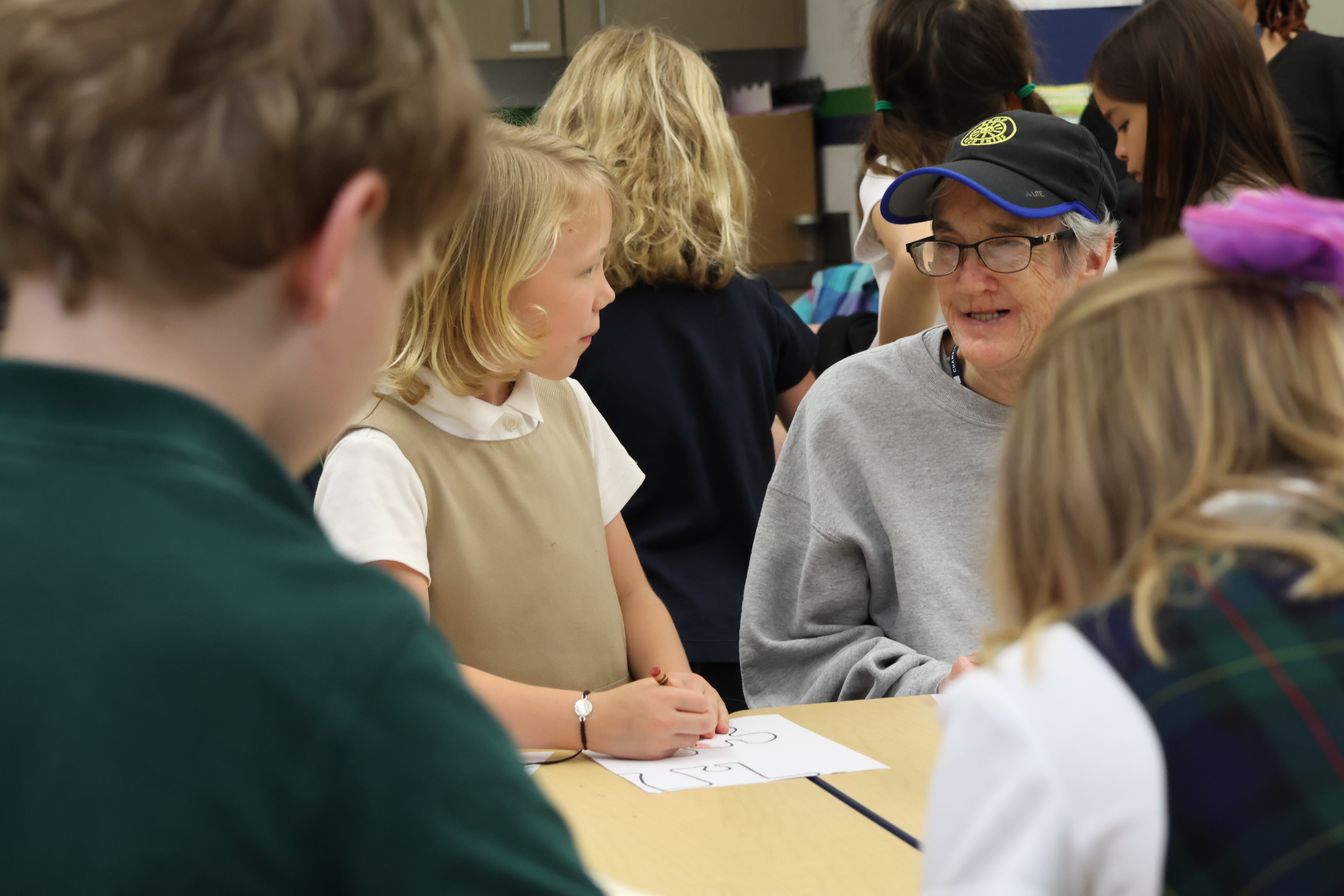
“When you think about Jesus’ greatest commandment - love the Lord your God with all your heart, all your soul, and all your mind - and the commandment to love your neighbor as yourself, that is being inclusive, that is embracing your neighbors and embracing diversity,” she said.
“It’s a calling from God.”

